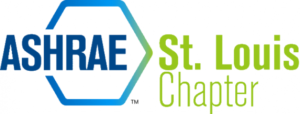REGISTER
ASHRAE STL Chapter Meeting
Monday, January 27, 2025
4:30-7PM
Register Early! Registration closes Wednesday, Jan 22, 2025.
NO SHOWS – If you sign up and are unable to attend, please cancel your registration on EventBrite 1 week before.
If something comes up last minute, please send us an email. We are charged for the expected number of attendees. If you sign up and do not attend, the chapter is still paying for your seat and will request a $25 donation.
Speaker 1
Jackie Sharrock serves as the Vice President of Sales for North America at ADEY, bringing over 22 years of expertise in technical sales. Throughout her extensive career, she has specialized in solutions designed to enhance water quality and optimize the performance and longevity of hydronic equipment. Her deep knowledge and professional experience have been shaped by numerous impactful projects that have successfully improved water quality and preserved the lifespan of critical equipment. Jackie’s commitment to delivering value through innovative solutions has established her as a highly accomplished and respected leader in her field.
Speaker 2
David Zdvorak is a sales professional who graduated from the University of Missouri Science & Technology in 2015. With a robust career spanning over eight years, he has specialized in the sales of large technical equipment within the mechanical and electrical industries. His expertise in the electrical sector is highlighted by his work with KOHLER Power Systems, where he focused on standby power generator sets. Transitioning into the mechanical domain, David has expanded his proficiency to include a range of equipment such as cooling towers, heating boilers, pumps, and filters. His comprehensive knowledge and experience in these areas make him a valuable asset in the technical equipment sales industry.
Topic / Summary
Course Title: Hydronic System Water Quality, Protecting Your System Designs
This course provides an in-depth exploration of best practices for maintaining and protecting hydronic systems in commercial facilities. We will educate about common issues that arise in closed-loop heating and cooling systems, including corrosion, bacteria, biofouling, debris, and scale buildup, and how these problems impact system efficiency and longevity. Through a combination of theoretical knowledge and practical solutions, attendees will gain the skills necessary to optimize water treatment, ensure system longevity, and improve energy efficiency while reducing maintenance costs.
Learning Objectives:
By the end of this course, participants will be able to
Understand Key Hydronic System Challenges:
- Identify the root causes of hydronic system issues, such as corrosion, biofouling, and debris accumulation.
- Assess how these issues impact performance, efficiency, and system longevity.
Implement Water Quality Solutions
- Learn about modern water treatment techniques and tools, including chemical treatments and magnetic filtration.
- Evaluate the effectiveness of dirt and air separation systems.
Optimize System Efficiency
- Understand the role of biofilms, bacteria, and scale in heat transfer inefficiencies.
- Apply strategies to mitigate these impacts, reducing energy consumption and CO2 emissions.
Maintain Equipment Longevity
- Review the importance of system protection through regular testing, cleaning, and inhibitor use.
- Learn about best practices for installation and maintenance of filtration systems.
Adopt Industry Best Practices
- Apply insights into innovative filtration systems like MagnaClean for new constructions and retrofits.
- Understand the financial implications of poor maintenance versus proactive hydronic system care.
This course is essential for engineers, facility managers, and HVAC professionals who are committed to maintaining high-performing hydronic systems while reducing operational costs and ensuring long-term reliability. This course will also have a Sample Report / Recommendation Section for a little interactive Q&A with the audience. We will go over two case studies and ask the audience for solutions to apply what they have learned.
CONTINUING EDUCATION
2 PDH











